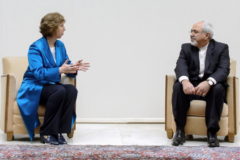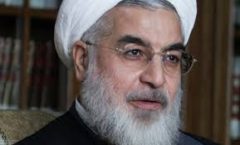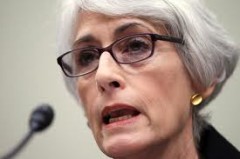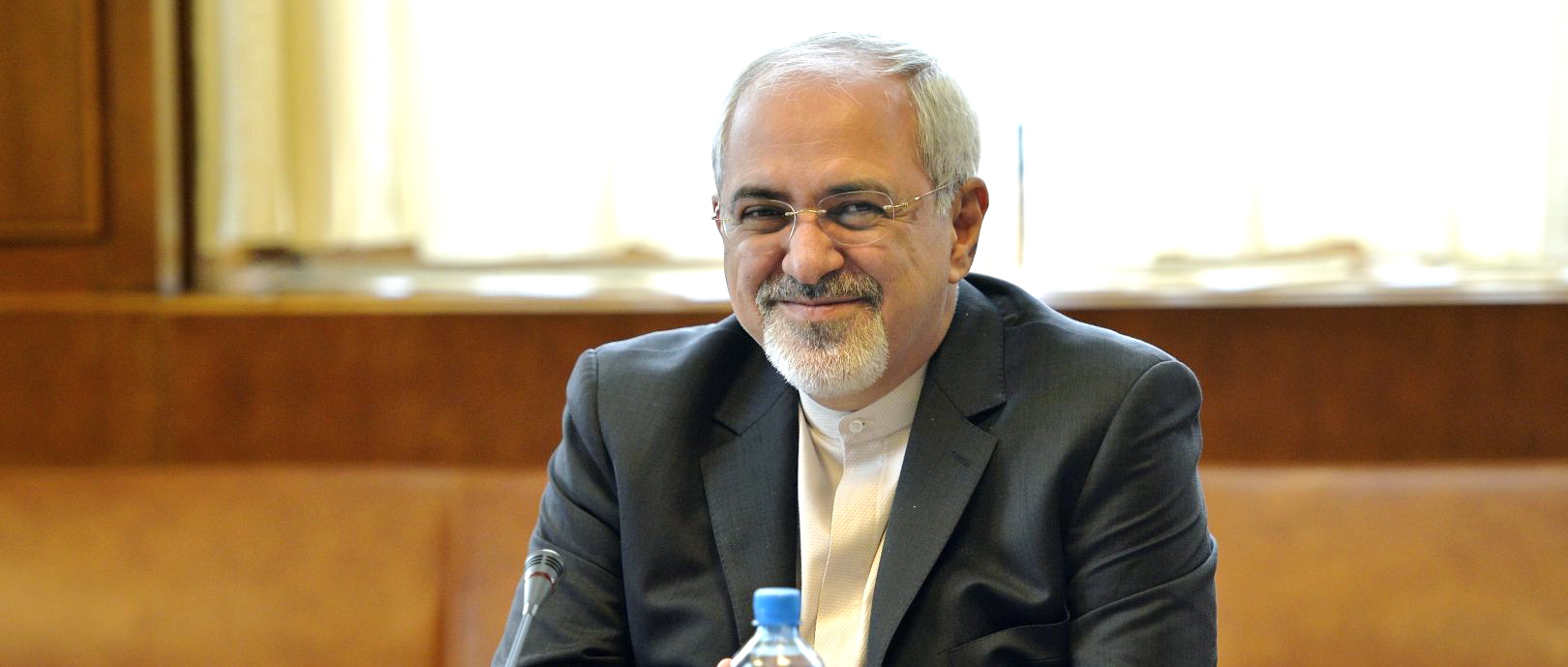So near, yet so far.
As recently as a week ago, speculation was rife that Iran and the world powers were on the cusp of reaching an historic agreement on Iran’s contentious nuclear program.
Such was the upbeat mood that Iranian Foreign Minister Mohammed Javad Zarif ventured to say that a deal could be signed at upcoming talks in Geneva, which took place earlier this month.

But after three days of intensive negotiations, attended by the foreign ministers of the United States, Russia, China, France, Britain and Germany and the chief foreign policy representative of the European Union, a deal had eluded them, and a new round of discussions was scheduled to begin in Geneva on Nov. 20.
By all accounts, the objective of the latest talks was an interim agreement under which Iran would temporarily freeze its nuclear program in exchange for an easing of some economic sanctions, which have virtually crippled the oil-based Iranian economy.
Sporadic talks on this vitally important issue started several years ago, only to fail each time, prolonging an acrimonious and dangerous impasse and increasing the possibility that the United States, or Israel, might try to resolve this vexing problem by bombing Iran’s nuclear sites.
This was a scenario that few relished because it could trigger a wider war in the Middle East, with perhaps unintended and disastrous consequences.
The tantalizing prospect of a diplomatic solution emerged last summer, when Hassan Rouhani, a cleric with close ties to the regime, was elected president of Iran. Hailed in some circles as a moderate, at least in comparison to his despicable predecessor, Mahmoud Ahmadinejad, Rouhani quickly set a new tone.
Claiming that Iran had no interest in acquiring a nuclear arsenal, he said that Iran’s nuclear program was peaceful in nature and that his main priority was to seek relief from sanctions by hammering out an agreement with the five members of the United Nations Security Council and Germany.
But even as Rouhani launched his so-called charm offensive, the Iranian government insisted it would not relinquish its right to enrich uranium, one of the key steps in the production of an atomic bomb.

Despite Iran’s obstinacy, the United States characterized negotiations as the best chance to relieve Iran of its nuclear arsenal and defuse the possibility of a Middle Eastern war, which could well wreak havoc on global economies.
Buoyed by rumours that an interim agreement was achievable, the foreign ministers of the six major powers rushed to Geneva to finalize details. But at a somber press conference on Nov. 10, European Union official Catherine Ashton said that, while progress had been achieved, “some questions” still needed “to be addressed.
Staking out an optimistic position, Zarif claimed he was not disappointed by the outcome and had expected “differences of views.”
Reports from Geneva suggested that France had blocked an agreement because Iran’s had refused to suspend work on its plutonium-producing reactor in Arak or downgrade its stockpile of 20 percent-enriched uranium to a far lower level.
In the wake of the talks, U.S. Secretary of State John Kerry delivered a fairly positive assessment: “There’s no question in my mind that we are closer now, as we leave Geneva, than we were when we came, and that with good work and good faith over the course of the next few weeks, we can in fact secure our goal.”
Washington is pursuing a two-pronged strategy to reach an agreement. In return for freezing its nuclear program for six months, Iran would receive a measure of relief from sanctions. In the meantime, the diplomatic process would continue, with the end game being a comprehensive pact that would eliminate Iran’s militarized nuclear program and leave its civilian program in place.
One of the pivotal issues yet to be settled is whether Iran has a right to enrich uranium.
Leaks from the most recent talks suggest that the interim agreement that appeared to be taking shape in Geneva would have halted Iran’s 20 percent enrichment activities, but would have permitted Iran to retain its nuclear infrastructure and maintain a uranium “breakout” capacity, or the ability to build a nuclear bomb at will.
According to reports, the United States seems ready to allow Iran to enrich its uranium stocks to 3.5 percent purity, provided iron-clad and verifiable restraints are placed on its nuclear program.
Under the proposed interim accord, sanctions would have been lifted on petrochemical products, gold and automobile and airplane spare parts, and overseas Iranian assets of $3 billion would have been unfrozen.
Not surprisingly, Israel, a key U.S. ally, strenuously objected.
Prime Minister Benjamin Netanyahu lambasted the proposal as “very dangerous,” a “bad deal” and “a mistake of historic proportions.” Rejecting a phased approach, or an easing of sanctions, he is calling for a final agreement that would settle all outstanding issues at once.
In general, Netanyahu is demanding a complete halt to Iranian uranium enrichment and the dismantlement of Iran’s nuclear research program. He argues that Iran will be perilously close to “breakout” capacity if it is permitted to enrich uranium and keep nearly 20,000 centrifuges, which convert uranium into fissile material.
Netanyahu has also demanded the removal of all enriched uranium from Iranian territory, the closure of facilities in Qom and Natanz and the cessation of construction of a heavy-water reactor in Arak.
In the face of Netanyahu’s maximalist demands, Kerry cautioned U.S. allies not to “jump to conclusions,” saying that since the United States is striving for an agreement under which Iran would be prevented from joining the nuclear club, Israel and Arab states like Saudi Arabia need not worry and should support it.
“We are not blind, and I don’t think we are stupid,” Kerry said.
U.S. President Barack Obama has expressed similar sentiments, asserting his administration is strongly committed to preventing Iran from obtaining nuclear weapons.

To underscore this point, the chief U.S. negotiator at the talks, Wendy Sherman, was dispatched to Israel this week to assuage Israel’s concerns. Sherman, in discussions with Israeli officials and journalists, admitted that the United States and Israel have tactical disagreements over Iran. But she hastened to add that both countries are jointly committed to a policy of prevention rather than containment.
Realistically, Israel should not be under any false illusions that it can convince the major powers to force Iran to dismantle its nuclear program, lock, stock and barrel.
Iran, in any event, would not submit to such a diktat.
At the end of the day, Israel may have no alternative but to accept an internationally-supervised agreement under which Iran would be permitted to enrich uranium to an innocuous level of 3.5 percent.
More broadly, Israel will have to learn to coexist with Iran, even though the Iranian Islamist regime is fundamentally hostile to Israel’s very existence and keenly supports surrogates like Hamas and Hezbollah, both of which have fought wars with Israel
Ten days ago, in a scathing comment that accurately reflects Iranian government policy, Iran’s supreme leader, Ayatollah Ali Khamenei, demonized Israel as an “illegitimate and bastard regime.”
No wonder Israel has adopted such a hard line view on Iran’s nuclear ambitions.
